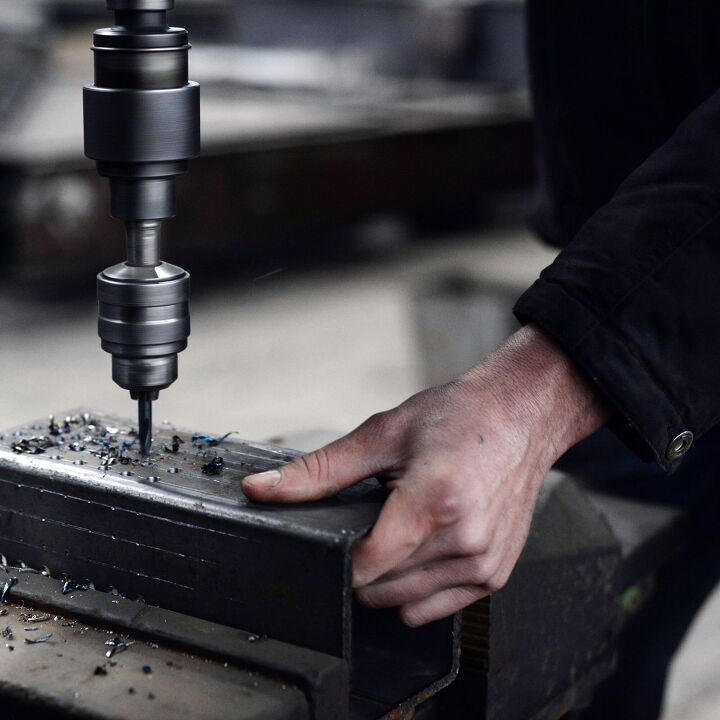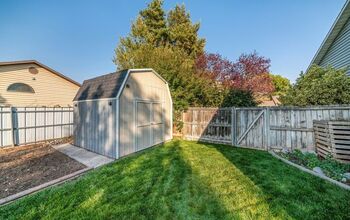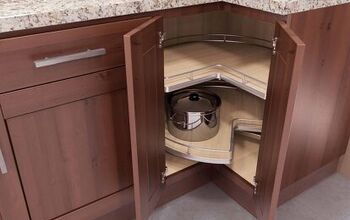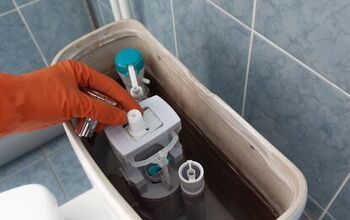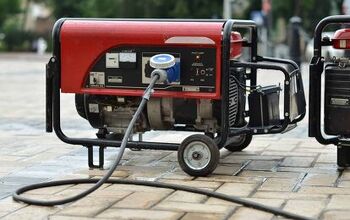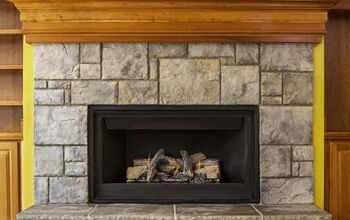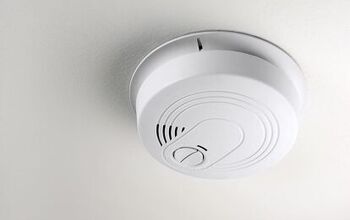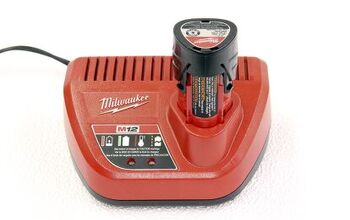What Size Drill Bit Should You Use For A #8 Screw Into Metal?

If you are working on a project that involves drilling screws into a hard surface like a hardwood or even metal, you probably need a drill bit. You don’t want to drill the screw right into the hard material, as there are all sorts of bad things that can happen. Drilling pilot holes is an important and simple process. It does, however, involve some planning and research. So, when you plan on using #8 screws you need to find the perfect size drill bit to make pilot holes.
When you are drilling a #8 screw into metal or other hard surfaces, make a pilot hole using a 1/8” drill bit. A 1/8” straight drill bit is ideal for drilling into metal in preparation for a #8 screw as it is the exact diameter of the screw without its threads. With softer materials, you can use a 3/32” bit.
Drilling pilot holes is a simple but crucial part of building. This is particularly true when you are working with harder materials like hardwoods and sheet metal. When you are getting ready to screw into metal, take the time to consider the variables involved in choosing the right drill bits. In this article, we will go over the #8 screws, and how to best select a drill bit for its pilot holes.
What Is A #8 Screw And How Big Is It
A #8 screw is a type of screw that many DIY folks likely have in their tool box. This is because it is a versatile screw that you can use in many types of building projects. It is commonly used to connect wood to other wood. It can also be used with sheet metals or soft woods as well.
A #8 screw is used for many carpentry projects, as it is often used to connect wood to wood in furniture constructions. It is also common in some light construction, including cabinetry and even some sheet metal work. This light construction work is when drilling a pilot hole becomes crucial.
The number 8 attached to the screw refers to the screw’s diameter. The bigger the number, the larger the screw’s diameter. When you see a second number, that refers to the number of threads per inch. A #8 screw is 5/32 of an inch wide with 0.164 inches, or 11/64 in thread diameter. This is not a lot of thread diameter and makes selecting a pilot hole size important.
How To Determine What Size Drill Bit For A #8 Screw
Match The Screw Diameter, Not The Threads
One of the most important things to remember when drilling a pilot hole for a #8 screw, or any screw for that matter, is to go by the screw diameter. This means you want to choose a drill bit according to the width of the screw itself, not its diameter with the threads. This is particularly important when drilling into hard material like sheet metal or wood. Precision is very important to create a secure connection.
Don’t Make The Hole The Same Size As The Screw
Another issue you don’t want to run into is drilling a hole that is the same size as the screw with threads. This might make for an easy insertion, but it won’t maximize the function of a screw. You want the threads to also do their job, so let them by drilling a slightly smaller pilot hole.
Consider The Material You Are Drilling
You also need to consider the material you are drilling into. If you are drilling into something soft, like a soft pine wood or something malleable, you might want to choose a narrower pilot hole, like a 7/64” bit hole. This is because when you drill a screw into softer materials, you only need a small hole as a guide, since the wood has some give.
If, however, you are working with metal or harder woods, you need to be very precise. You want to use a 1/8” bit any time you work with hard woods or metal. It will result in fewer cracks and damaged screws.
Remember You Can Always Drill Bigger
Just as a friendly reminder, you can always drill a bigger hole, but you can’t drill smaller. If you think you can get away with a 7/64 or smaller bit for your project, go for it. But don’t go bigger than the job entails. In doing so, you may need to seal up the hole, wait and start again. This is a long process that can be avoided using some common sense.
The Type Of Drill Bit You Use Also Matters
Just as there are all sorts of different screws out there, there are also different types of drill bits. Some are ideal for certain tasks and not as good at others. It makes sense that there are certain drill bits that work better for creating a pilot hole for a #8 screws than others.
You might use a small pointed drill bit when working with wood surfaces, but these can spur. In general, your drill bit will vary based on the material. When you plan to drill into metal, use a metal drill bit. These bits are wide-angled, and you can distinguish them by the black paint towards the tip. These are ideal for drilling a pilot hole into metal for your #8 screw.
Why Pre-Drilling A Pilot Hole Is So Important
If you have self-tapping screws or see the sharp point on your screw, you might wonder if you even need a pilot hole, or just a screwdriver. Modern screws and fasteners now come equipped to make it possible to drill into all sorts of materials without a pilot hole. But just because you can, doesn’t mean you should
Drilling a pilot hole helps for several reasons. Primarily, you can count on precision and accuracy when you use a pilot hole. Pilot holes not only break through the hard material so the screw doesn’t have to, they also act as guides. This allows your screws to go in at the perfect angle, enhancing their strength.
When you are screwing a #8 screw into any hardwood or metal, you really need to drill a hole. This is because without one, you will likely damage the screw, the surface material, or both. You can even go with something as small as a 1/64” bit. Just make sure you have some sort of guide for your screw.
Concluding What Size Drill Bit You Need For #8 Screw Metal
The #8 screw is quite common in many home improvement and light construction projects. When you find yourself preparing to use this type of screw with a metal project, you need to first consider what size pilot hole to drill. When working with hardwoods and metal, you need a 1/8” drill bit hole. If you are concerned about the hole being too large, consider starting with 1/64 inch and working your way up. You want to make sure you don’t drill the hole too big. This is because the #8 screw has a minimal thread diameter of 0.164 inches.
Related Guides:

Tom Gaffey is an expert writer who currently resides in Washington D.C. Tom has a passion for real estate and home improvement writing, as well as travel and lifestyle writing. He lived the last twelve years in Hawaii where he worked closely with luxury resorts and event planners, mastering his knowledge of aesthetics and luxury products. This is where he found his passion for home improvement and a keen interest in DIY projects. Currently, Tom resides in Washington D.C, and also working on his debut fiction novel.
More by Tom Gaffey



